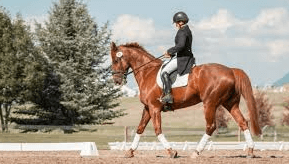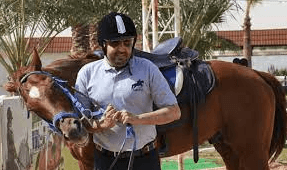Enhancing Equestrian Experiences: The Art of Horse Riding Commentary
Introduction
In the dynamic world of equestrian sports, horse riding commentary stands as a pivotal element that bridges the gap between riders and spectators. The skillful narration of horse riding events adds a layer of excitement and insight, transforming a mere competition into a captivating experience. This article delves into the realm of horse riding commentary, highlighting its significance, key components, and how it shapes the way we perceive equestrian sports.
The Role of Horse Riding Commentary
Horse riding commentary is more than just describing the action; it’s about crafting a narrative that engages, educates, and entertains the audience. A skilled commentator goes beyond stating facts, offering a deeper understanding of the riders’ strategies, horse behavior, and the intricacies of the competition. This enriching perspective elevates the overall viewing experience for both novices and seasoned enthusiasts.
Creating a Captivating Narrative
At the heart of horse riding commentary lies the ability to weave a compelling narrative. A commentator’s words have the power to transport the audience into the arena, making them feel as though they are witnessing the event firsthand. By describing the riders’ techniques, the grace of the horses, and the challenges of the course, the commentator creates a vivid mental image that resonates with the viewers.
Incorporating Equestrian Expertise
To excel in horse riding commentary, a solid foundation of equestrian knowledge is essential. Commentators should be well-versed in equestrian terminology, riding disciplines, and the rules of the competition. This expertise enables them to provide insightful analysis and context, adding depth to their commentary and fostering a greater appreciation for the sport.
Fostering Connection and Engagement
Successful commentary extends beyond relaying facts; it creates a connection between the audience and the riders. Commentators achieve this by sharing anecdotes, showcasing riders’ journeys, and highlighting the bond between horse and rider. This humanizing approach not only captivates the audience but also builds a sense of camaraderie and admiration for the participants.
Adapting to the Digital Landscape
In the digital age, horse riding commentary has transcended traditional boundaries. Online streaming platforms have enabled global audiences to tune into equestrian events, emphasizing the need for high-quality commentary that resonates with diverse viewers. Commentators now play a pivotal role in shaping the global perception of equestrian sports, making their role more crucial than ever before.
Conclusion
Horse riding commentary is an art form that transforms equestrian events into captivating narratives. By blending equestrian expertise with storytelling finesse, commentators engage, educate, and entertain audiences around the world. Through their words, they shed light on the complexities of the sport, showcase the dedication of riders, and inspire a new generation of equestrian enthusiasts. As equestrian sports continue to evolve, the role of horse riding commentary remains a cornerstone of the spectator experience.



